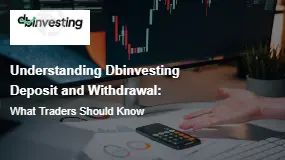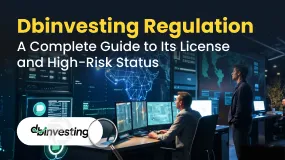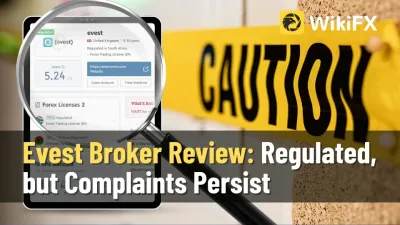WikiFX:How Singapore brings together the best in innovation and investment to drive start-up growth
Abstract:Singapore has established itself as a prominent worldwide entrepreneurship location. Direct investment and partnerships with global venture capital (VC) players have been critical in establishing this unique ecosystem, which is geared toward increasing a startup's prospects of regional success.

Singapore has positioned itself as a leading destination for global entrepreneurship. Direct investment and partnerships with global venture capital (VC) players have played a crucial role in creating this unique ecosystem, primed towards optimizing a start-ups chances of regional success.
As the world recovers from the COVID-19 pandemic and with Singapores easing of COVID-19 restrictions, you probably wonder if it is now a good time to invest in the Singapore stock market.
Let us evaluate how the market has been performing Year to Date (YTD). According to Bloomberg data, the Straits Times Index (STI) has risen 9.6% YTD. In contrast, the S&P 500 has declined 3.80% YTD and the Hang Seng Index (HSI) in Hong Kong declined by 7.7% YTD.
Irrespective of the threat of inflation, the ongoing Russia-Ukraine conflict and the higher commodity prices, the STI continues to do well1.
One of the reasons for this is that the bulk of STI‘s weight is based on Singapore’s three major banks: DBS Group (SGX: D05), United Overseas Bank (SGX: U11) and OCBC Ltd (SGX: 039), all of which have performed well.
As the three lenders contribute to almost 44% of the index, their performance inevitably has a large effect on the STIs direction.
According to the report “Phillip 2Q22 Singapore Strategy – A stagflation shelter” published on 4 April 2022 by Paul Chew, head of Phillip Securities Research: “Bank earnings will enjoy a huge lift as we enter an interest-rate cycle. A 100 basis point rise in rates can increase earnings by around 18%. We believe the three domestic banks have excess deposits or float totaling S$160bn that can immediately benefit from the rise in short-term rates2.”
DBS Group and United Overseas Bank Ltd reported impressive fiscal 2021 (FY2021) earnings. DBS reported a record S$6.8 billion in net profit for FY2021 and also increased its quarterly dividend to S$0.36 per share; while UOB reported S$4 billion net profit for FY2021 and also increased its final dividend for the full year compared to the last fiscal year. Similarly, OCBC saw higher FY21 earnings of S$4.86bn with higher net interest income offsetting steep allowances3.
Also, other sectors comprising the index are expected to perform well as Singapore reopens. Quoting from the same report mentioned above: “The reopening of borders and relaxation of social restrictions will be a further boost for corporate earnings. Primary beneficiaries are transport, telecommunications, retail and hospitality. They make up a combined 20% of the STI. Tourism accounted for 5% of GDP in 2019. So, it becomes a huge economic driver over the next 12-18 months.”
Based on the data from CBREs latest report on the Singapore hotel market, various signs of nascent recovery emerged over the second half of 2021, led by premium segments such as luxury goods and upscale markets. Tourism in Singapore is expected to pick up further over the course of 2022, benefiting the hotel industry in Singapore as usage of the Vaccinated Travel Lane scheme continues to grow4.
According to Mr Chew, another sector expected to perform well as Singapore reopens, is the construction sector. “Construction, namely building materials, will gain from a return of foreign labour and construction activity.”
Real Estate Investment Trusts (REITs) is also something investors can consider when looking at the STI. There are a total of seven REITs listed in the STI, and these companies hold a combined weight of about 14.6% within the index5.
To elaborate more, REITs hold assets in the hospitality and retail sectors which are expected to benefit as life returns to the pre-COVID norm.
Singapores retail sales rose 11.8 per cent year-on-year in January, compared with the increase of 6.7 per cent in December 20216.
The growth was mainly attributed to higher spending prior to Chinese New Year in early February this year, according to data released by the Singapore Department of Statistics (SingStat) on 4 March.
As for the performance of the STI YTD (see table above), one can see that it started rising after a brief decline. The decline, from 3 to 8 March 2022, was mainly due to the Russia-Ukraine conflict where Russia announced that corporate deals with companies and individuals from “unfriendly countries” including Singapore, required approval from a government commission. This resulted in the STI falling 0.4% to 3174.40. The index then started to rise again from 9 March 2022.
To gain exposure from the STI‘s good performance, investors can consider looking into Exchange-Traded Funds like SPDR STI ETF (SGX: ES3) (See table below) and Nikko AM STI ETF (SGX: G3B). In the SPDR STI ETF’s case, the ETF tracks Singapore‘s 30 biggest companies and the economy’s top-performing sectors such as banking, real estate, and industrial goods8.
The SPDR STI ETF is SGX‘s most famous ETF, and considered to be one of the core investments any Singaporean should have since it is a tracker of the country’s economy. Those who have been buying the ETF from its inception would have benefitted from Singapores rapid economic growth over the past decades. Amongst the ETFs also pay out dividends at regular intervals, prompting some investors to use them as a source of passive income9.
Related broker


Read more

Understanding Dbinvesting Deposit and Withdrawal: What Traders Should Know
When choosing a forex broker, few things matter more than how easy it is to make investments and withdraw them. Looking into the Dbinvesting Deposit and Dbinvesting Withdrawal processes is an important part of researching this broker. At first glance, this broker offers normal payment options. However, many users have reported serious problems that show a big difference between what the company promises and what actually happens to real traders. This article aims to give you the complete, honest truth. We will look at both the official procedures that Dbinvesting advertises and the real risks that every trader needs to know about. Here's some important background: as of early 2026, WikiFX (a global financial review website) gives Dbinvesting a very low score of 2.14 out of 10 and warns users to "Low score, please stay away!" This creates a dangerous situation where traders need to be extremely careful. This guide will first explain the payment methods the company claims to offer, then

Dbinvesting User Reputation: Is It a Safe Broker or a Scam?
When checking for a broker, the most important question is always about safety. Is my capital secure? Can I take out my profits? For Dbinvesting, the evidence we have gathered points to a conclusion that should make any trader think twice. Based on a thorough review of user feedback, regulatory status, and how transparent they are, Dbinvesting presents a high potential risk to its clients. We don't make this claim lightly; it's based on facts we can verify and a clear pattern of user-reported problems that can't be ignored.

Dbinvesting Regulation: A Complete Guide to Its License and High-Risk Status
When looking at a broker, the first question is always about safety. Is Dbinvesting a safe platform for your investments? The immediate answer is complicated and requires extreme caution. While Dbinvesting is officially a regulated company, its license comes from the Seychelles Financial Services Authority (FSA), which is classified as an offshore regulator. This difference is important and forms the basis of the high-risk status connected to this broker. This initial concern is made worse by objective, third-party data. As of our 2026 review, Dbinvesting holds an extremely low WikiFX safety score of just 2.14 out of 10. This score is not random; it is a data-based reflection of the broker's weak regulation, lack of transparency, and most importantly, its track record with clients. The platform has been flagged for a large number of serious user complaints, which show a disturbing pattern of issues, especially concerning withdrawing funds and the random cancellation of profits. The pu

Evest Broker Review: Regulated, but Complaints Persist
Evest is regulated, yet exposure reports cite withdrawal issues and aggressive managers. Verify the license on the WikiFX App before you deposit.
WikiFX Broker
Latest News
RM115 Million Lost in a Month: Are Malaysians Underestimating Investment Scams?
Invest RM300, Make RM10,000? Police Say It’s a Scam
Middle East Tensions Rattle Risk Sentiment: Airspace Closures Signal Supply Fears
War in the Middle East: Oil Spikes and Stocks Tumble as Conflict Enters "Uncharted Territory"
CySEC Withdraws CIF License of OBR Investments Ltd (OBRInvest)
Investment Scams That Could Be Targeting Malaysians Right Now
Geopolitical Conflict Drives Gold Rally as Insurers Cut Gulf Coverage
FX Markets: King Dollar Reigns Amid Chaos; BoJ Eyes "Neutral" Rates
Oil Markets Rally as Escalating Middle East Conflict Threatens Supply Lines
XBTFX Review: Beware of Offshore Regulated Forex Traps
Rate Calc
